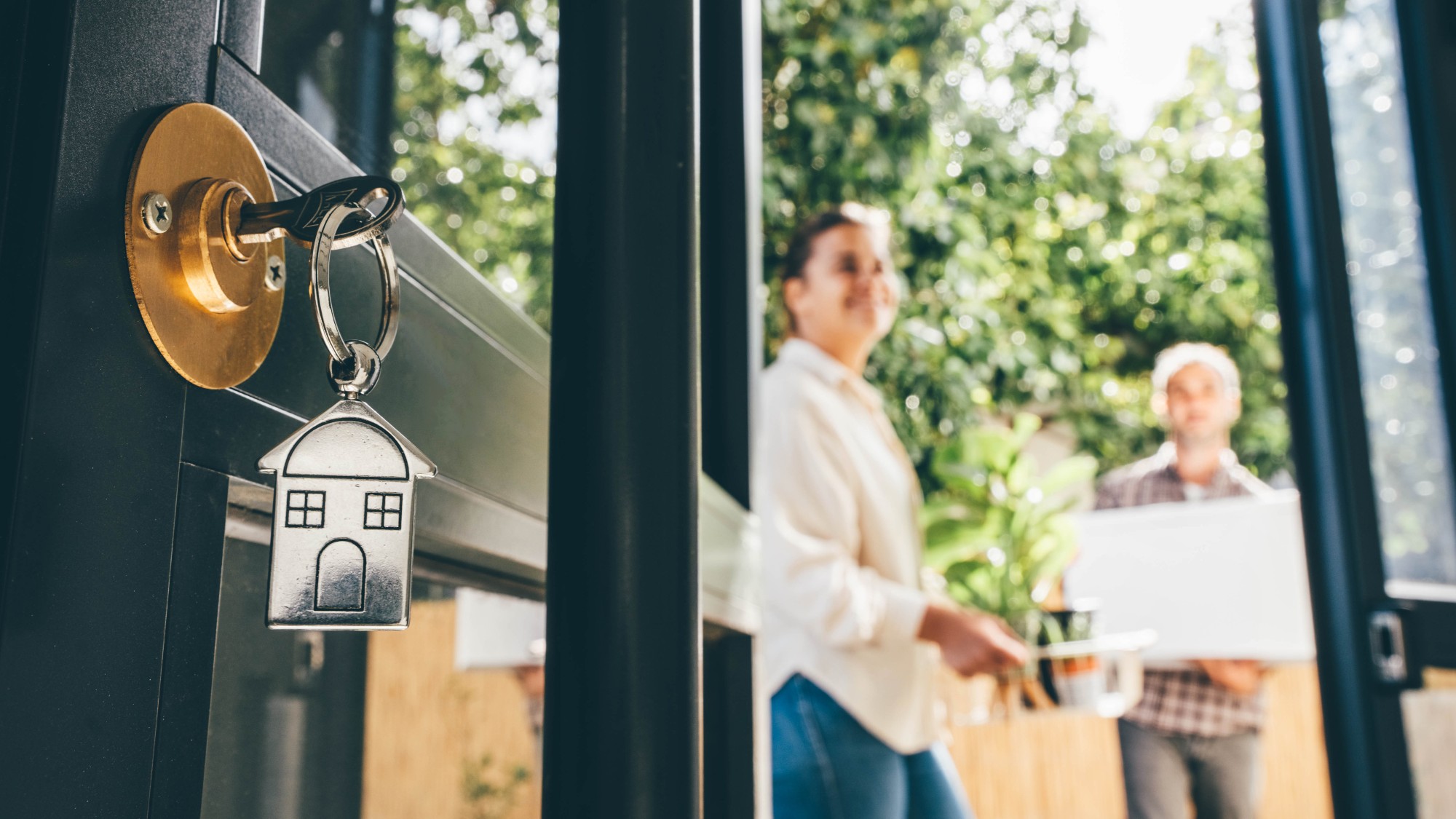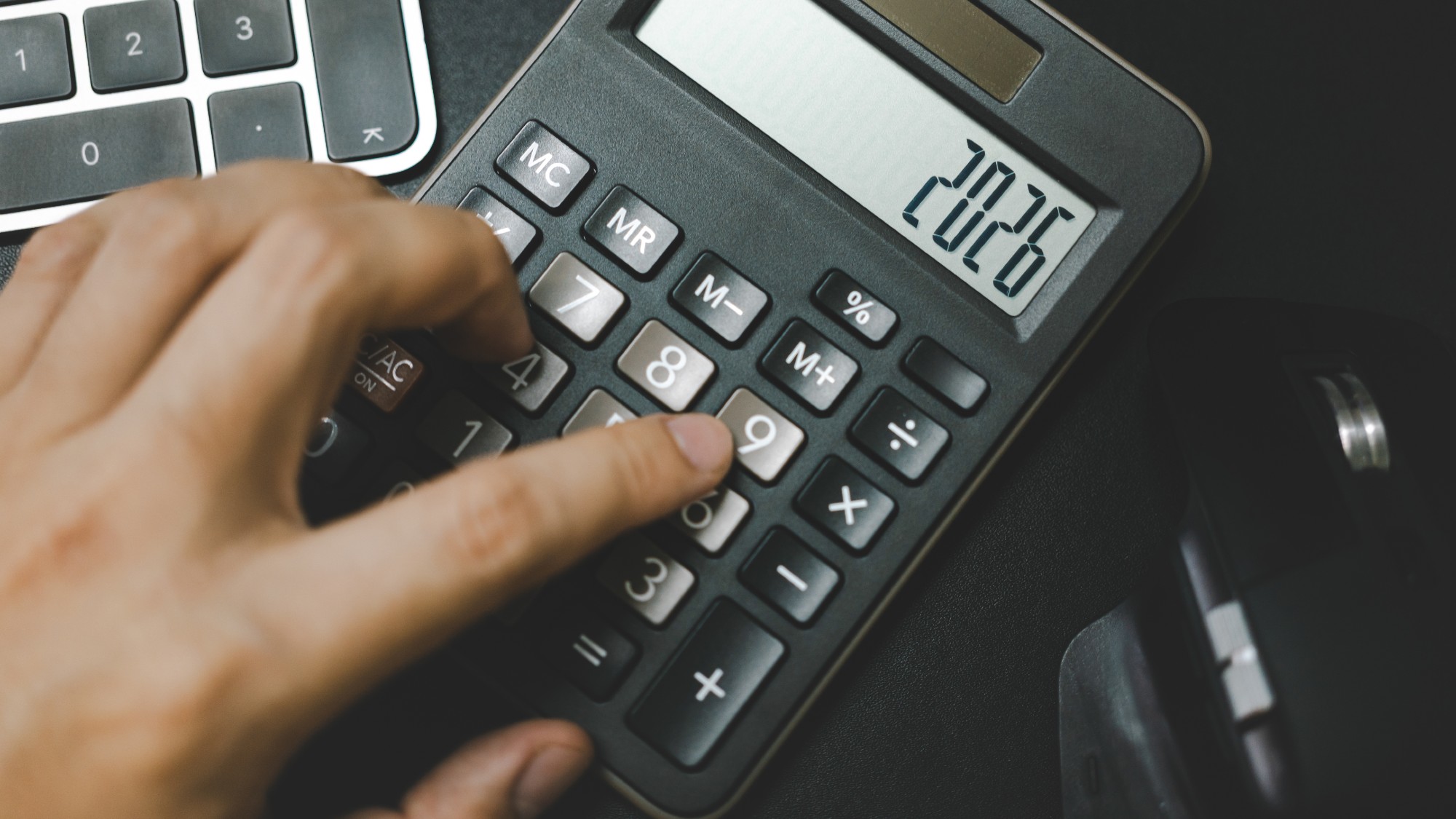How stamp duty works and who pays it
Homebuyers are in a rush to beat the upcoming stamp duty rise

A free daily email with the biggest news stories of the day – and the best features from TheWeek.com
You are now subscribed
Your newsletter sign-up was successful
Stamp duty is one of the UK's most unpopular taxes and more first-time buyers could end up paying the controversial charge due to an upcoming threshold change.
A "significant swathe" of people are set to be affected by the changes across England and Northern Ireland when they come into effect on 1 April, said the BBC.
Currently, buyers are not required to pay stamp duty land tax on properties less than £250,000. However, that figure will soon revert to £125,000. For first-time buyers, the sum is higher at £425,000, but from April, this will be lowered to £300,000. For those who are yet to start the legal process on their home, it is now too late to move before 1 April, said MoneyWeek.
The Week
Escape your echo chamber. Get the facts behind the news, plus analysis from multiple perspectives.

Sign up for The Week's Free Newsletters
From our morning news briefing to a weekly Good News Newsletter, get the best of The Week delivered directly to your inbox.
From our morning news briefing to a weekly Good News Newsletter, get the best of The Week delivered directly to your inbox.
What is stamp duty?
Stamp duty is a tax you may have to pay if you purchase a property or a piece of land in England or Northern Ireland above a certain price.
Buyers in Scotland pay a Land and Buildings Transaction Tax and in Wales there is a Land Transaction Tax.
UK nations have a "progressive system of stamp duty", said MoneySavingExpert. So, rather than paying a single rate on the entire purchase, you pay different rates on different parts of the property's value.
Who pays stamp duty?
Stamp duty is paid by the person buying the property, and your solicitor will file a return to HMRC when your purchase completes.
A free daily email with the biggest news stories of the day – and the best features from TheWeek.com
The amount depends on the value of the property and whether you're a first-time buyer, explained NerdWallet. Sometimes stamp duty "doesn't need to be paid at all".
From 1 April 2025, in England and Northern Ireland, there will be nothing to pay on the first £125,000 of a property purchase. On the next £125,000 – from £125,001 to £250,000 – the rate is 2%. Buyers will pay 5% on anything between £250,001 and £925,000, 10% on the next £575,000 and 12% on anything above £1.5 million.
Currently, first-time buyers do not pay any stamp duty on the first £425,000 of a purchase, and owe 5% on the portion from £425,001 to £625,000. But after April's change, the threshold will revert to its previous levels. This means first-time buyers will not pay anything up to £300,000, but will need to pay 5% on the portion from £300,001 to £500,000.
You can usually borrow more on your mortgage to cover the stamp duty, said MoneySavingExpert, but it is "vital to be aware of the cost", as it means you also pay interest on that money.
How does stamp duty work on second homes?
The amount of stamp duty a person pays on their second home will also go up, as a result of changes made in the Autumn Statement by Chancellor Rachel Reeves. Previously, second-home owners paid 3% stamp duty on properties with a value of up to £250,000, but now they must pay 5%. This "surcharge" is applicable to those who have a second home in the UK while living abroad, as well as those who purchase their second home through a limited company, said Sky News.
How does stamp duty work on shared ownership properties?
Shared ownership allows people to buy a specific share of a property while paying rent on the rest. As buyers can purchase between 10% and 75% of a property's value, it has become an increasingly popular scheme for those hoping to get on the property ladder.
After purchasing a home under shared ownership, there are "two options" available for paying stamp duty, said law firm Osbornes. A homeowner can either pay stamp duty on the full market value of the property, or only on the "initial share" purchased. The latter seems to be the "more cost-effective" option, at least "on the face of it", but while it may reduce the amount of stamp duty a homebuyer has to pay now, it could lead to additional charges "down the line".
How will stamp duty changes affect homebuyers?
While the changes will affect all homebuyers, the shift is most likely to impact those purchasing a house for the first time.
Rising stamp duty costs may contribute to a "growing trend" of first-time buyers being "forced out of their current neighbourhood", said MoneyWeek. However, for those who can purchase a property for less than £500,000, the impact of the changes will be "less dramatic".
However, this all relates to the property prices in the area of your choosing. It means the impact of stamp duty changes will be most palpable in southern England, with those living in London, the South East and the East of England "hardest hit", said Sky News. For example, in Islington in north London, stamp duty is set to rise "by an average of £15,000".
Rebekah Evans joined The Week as newsletter editor in 2023 and has written on subjects ranging from Ukraine and Afghanistan to fast fashion and "brotox". She started her career at Reach plc, where she cut her teeth on news, before pivoting into personal finance at the height of the pandemic and cost-of-living crisis. Social affairs is another of her passions, and she has interviewed people from across the world and from all walks of life. Rebekah completed an NCTJ with the Press Association and has written for publications including The Guardian, The Week magazine, the Press Association and local newspapers.
-
 How to Get to Heaven from Belfast: a ‘highly entertaining ride’
How to Get to Heaven from Belfast: a ‘highly entertaining ride’The Week Recommends Mystery-comedy from the creator of Derry Girls should be ‘your new binge-watch’
-
 The 8 best TV shows of the 1960s
The 8 best TV shows of the 1960sThe standout shows of this decade take viewers from outer space to the Wild West
-
 Microdramas are booming
Microdramas are boomingUnder the radar Scroll to watch a whole movie
-
 What are the best investments for beginners?
What are the best investments for beginners?The Explainer Stocks and ETFs and bonds, oh my
-
 What’s a good credit card APR?
What’s a good credit card APR?The Explainer They have gotten even steeper in recent years
-
 Filing statuses: What they are and how to choose one for your taxes
Filing statuses: What they are and how to choose one for your taxesThe Explainer Your status will determine how much you pay, plus the tax credits and deductions you can claim
-
 3 tips to help protect older family members from financial scams
3 tips to help protect older family members from financial scamsthe explainer Prevent your aging relatives from losing their hard-earned money
-
 What would a credit card rate cap mean for you?
What would a credit card rate cap mean for you?the explainer President Donald Trump has floated the possibility of a one-year rate cap
-
 Planning a move? Here are the steps to take next.
Planning a move? Here are the steps to take next.the explainer Stay organized and on budget
-
 What to look for in a reliable budgeting app
What to look for in a reliable budgeting appThe Explainer Choose an app that will earn its place in your financial toolkit
-
 3 smart financial habits to incorporate in 2026
3 smart financial habits to incorporate in 2026the explainer Make your money work for you, instead of the other way around